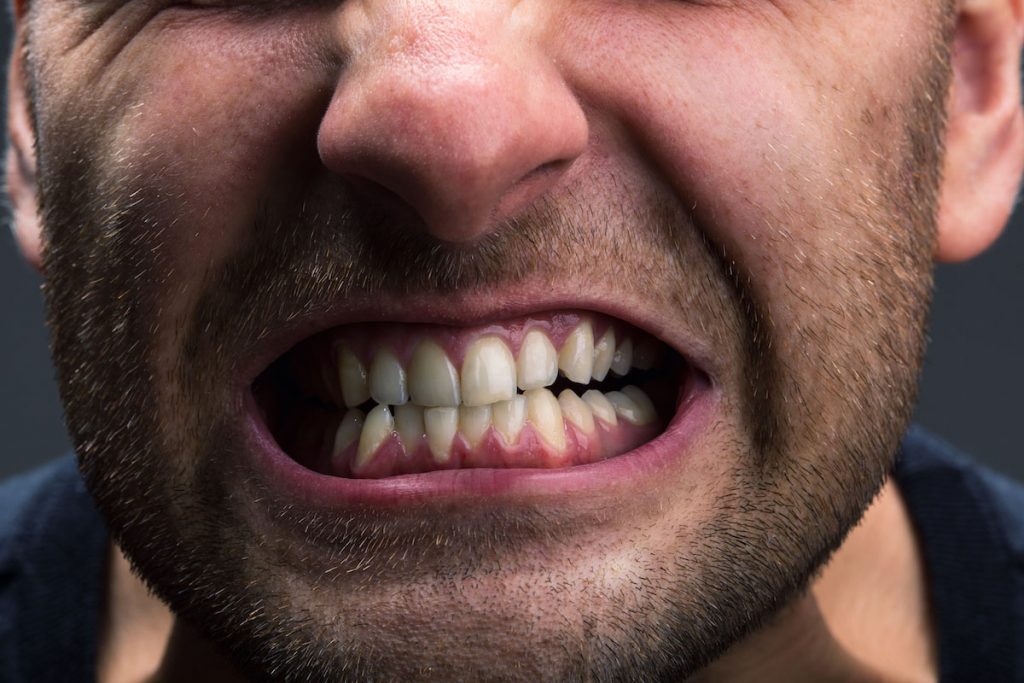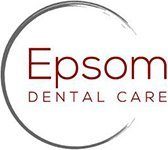Bruxism – Causes, Symptoms and Solutions

Bruxism is the medical term for teeth grinding, a condition that commonly affects people during sleep.
If grinding occurs on a regular basis, it will damage your teeth and cause other oral health complications.
Causes and Symptoms of Bruxism
People can grind their teeth for a variety of reasons including:
- Stress and anxiety
- Abnormal bite
- Crooked teeth
- Sleep apnoea
Determining whether you suffer from bruxism can be difficult as it generally happens during sleep.
Ask a loved one to check you while you sleep or record yourself and listen for grinding noises.
When you first wake up, check for symptoms such as:
- A dull, constant headache
- A sore or tender jaw
- Tooth sensitivity
- Inflammation of the gums
- Wounds on the tongue and cheek
Visiting a dentist is the best way of confirming whether you have bruxism. They know exactly what to look for while examining your mouth and jaw.
Home Remedies
Grinding is difficult to cure but it can be managed. The appropriate remedy will depend on the cause of the grinding.
If it’s due to lifestyle factors, there are several ways to help prevent it at home.
1. Reduce Stress
Try to reduce the amount of stress in your life.
This could include addressing stressful relationships, avoiding overworking, exercising, meditating or attending stress counselling.
2. Get More Sleep
Poor sleeping habits can contribute to grinding. Aim to go to bed earlier and wake up at the same time every day. Avoid screens two hours before bed and keep your bedroom at a cool temperature.
3. Maintain a Healthy Diet
Reduce your intake of food and drinks containing caffeine, like soft drink, coffee and chocolate.
Caffeine is a stimulant which makes it difficult to relax the muscles in your jaw.
Grinding often intensifies after drinking alcohol, so consumption should be limited.
Eat a balanced diet with plenty of calcium and magnesium, which are necessary for muscle function and nervous system health.
4. Eliminate Chewing Habits
Stop chewing on non-foods such as pencils, pens and chewing gum. These habits encourage your jaw muscles to get used to repetitive clenching and grinding actions.
5. Practice Relaxing Your Jaw
If you notice your jaw is tense during the day, practice relaxing it by placing the tip of your tongue between your teeth.
Professional Remedies
Getting help from a dentist is the best way to reduce grinding habits, prevent serious damage and repair any existing damage that may have occurred.
If bruxism is discovered early enough, it can be managed with a protective guard worn at night. This guard is custom made to fit your teeth, preventing damage and ensuring comfort.
In cases where bruxism has gone untreated for years, you may have to undergo reconstructive procedures to restore your teeth to their original biting height.
If the position of your bite is not correct, it can strain your jaw joint and muscles, resulting in TMJ dysfunction.
Better Smiles at Epsom Dental Care Applecross
If you think you may grind your teeth, you should consult a dentist as soon as possible to prevent damage.
If you need bruxism treatment or advice from a dentist in Applecross, visit Epsom Dental Care Applecross.
We can provide bruxism remedies such as protective guards, reconstructive dentistry and personalised lifestyle advice. Contact us today.
If you have any questions about our services, we are happy to answer any questions and also schedule you an appointment. Simply contact us online or call (08) 9316 0555.
We are located at 729 Canning Hwy in Applecross WA.
